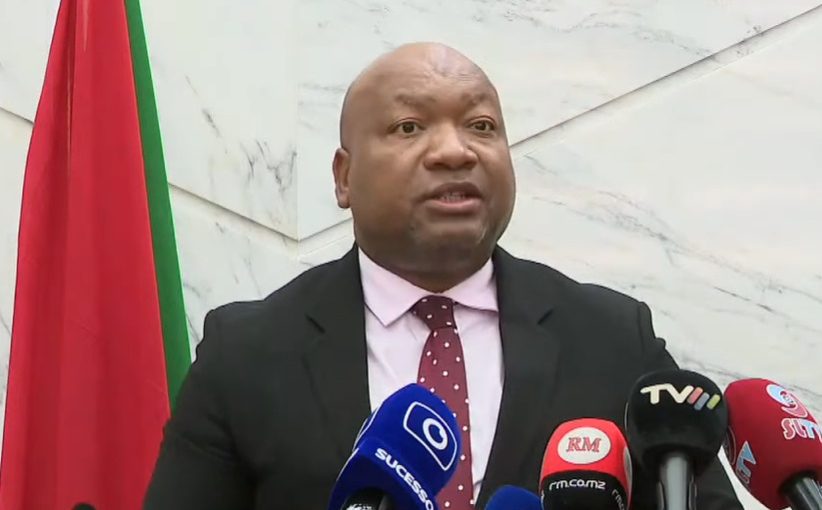Mozambique's President calls for consolidation of "shared citizenship" in CPLP countries
Mozambique: Government changes ADIN’s attributions and competences – Watch

Screen grab: TVM
The Government made yet another change to the Northern Integrated Development Agency (ADIN), created in 2020 with the aim of boosting development in the provinces of Niassa, Cabo Delgado and Nampula. The changes affect the legal provisions that regulate the functioning of ADIN.
At the 32nd session of the Council of Ministers,on Tuesday, the government approved the Decree revising Decree No. 9/2020, of 18 March, which created ADIN. This is a new measure adopted by the Government, after successive and unsuccessful changes in the institution’s managers. In its four years of existence, ADIN has had three chairmen of its Board of Directors.
With this change, the Executive says it intends to clarify ADIN’s attributions and competences, with regard to institutional coordination and articulation.
According to the approved Decree, ADIN will now carry out the supervision and technical coordination of the implementation of all Sector and Partner Development Programmes and Projects, as well as the articulation of stakeholders in the development of the Northern Region.
At the same meeting, the Council of Ministers approved the Decree extending the period of operation of the Compact II Development Office.
The extension for a further 90 days of the transition period of resources from the Compact II Development Office to the MCA – Mozambique (Millennium Challenge Account -Mozambique), aims to conclude administrative processes, the closure and the installation of the institutions.
The Government also approved a Decree repealing Decree No. 68/2010 of 31 December, which approved the Terms and Conditions of the Concession Contract for the Mphanda Nkuwa Hydroelectric Project.
At its 32nd Ordinary Session, the Cabinet also approved the National Strategy for Financial Inclusion for 2025-2031, which establishes the main guidelines for expanding access and increasing the use of affordable and quality financial products and services, contributing to inclusive economic growth, thus consolidating the efforts already initiated to respond to the needs of the main disadvantaged groups, introducing cross-cutting themes such as climate change and enhancing technological innovation, aligning both with global trends and the national context.
Still on the same subject, the Executive approved a Decree creating the 2025-2031 National Committee for Financial Inclusion, a coordinating body that brings together the various relevant sectors involved in implementing the Strategy for Financial Inclusion and promoting financial inclusion in the country.
At its weekly meeting, the Executive also approved the Decree that approves the Regulation of Public Water Distribution and Wastewater Drainage Systems and repeals Decree No. 30/2003, of 1 July, with a view to adjusting the technical aspects inherent to the design, operation and exploitation of the systems to environmental changes associated with natural and climatic events that occur over the years.
In this same area, the Council of Ministers also approved the reappointment of Suzana Loforte for a second term as Chairwoman of the Board of Directors of the Water Regulatory Authority, IP (AURA).
Also in the session on Tuesday, the Council of Ministers considered information on:
- The meeting in Paris FATF Plenary 23-24 October] [on the removal of Mozambique from the Grey List];
- The results of the BAUBAI 1 well, in Area PT5-C, in Inhambane province;
- The National Production Plan;
- The Launch of the 2024-2025 Agrarian Campaign;
- The Monument to the Xitaxi Massacre, Muidumbe District, Cabo Delgado province.












Leave a Reply
Be the First to Comment!
You must be logged in to post a comment.
You must be logged in to post a comment.